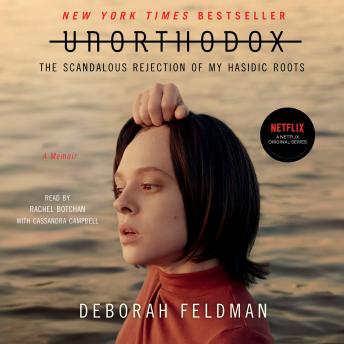
However, trouble follows when her husband and his cousin, intending to drag her back to Williamsburg, come looking for her upon learning about her pregnancy.Įsty applies for a special scholarship to the music conservatory reserved for students from extraordinary circumstances.

She quickly befriends some students around her age at a music conservatory. Upon her arrival in Germany, she has very few possessions to her name, little education, and knows virtually nobody in the country. When her husband asks for a divorce, a shocked Esty makes a plan to quietly flee. There is a heavy emphasis on starting a family quickly after the wedding, as the Torah instructs followers to “be fruitful and multiply,” making Esty’s inability to get pregnant during the first year of her marriage a serious problem within her community.ĭeborah Feldman picture alliance // Getty Imagesĭivorce in this community is also very rare. Arranged marriages are common, with most Hasidic Jews entering an arranged marriage after meeting only a few times before the ceremony, Haaretz reported.

Children attend private schools, where they spend much more time studying their religion than learning subjects taught in public schools, according to Forward. Per the word of the Torah, gender roles remain traditional women and men are frequently separated, particularly in worship and in school.

Hasidic Jews believe that the Torah, the five books of Moses, is the literal word of God. The fundamental belief of Hasidism is “change nothing,” or continue to follow the same lifestyles that were followed when the group began. Like Feldman, who grew up in Williamsburg, Esty is raised in Williamsburg’s Hasidic Jewish community, a strictly traditional and ultra-orthodox branch of Judaism formed in Europe in the 18th century. The Best Netflix Original Shows of 2020.

Trapped as a teenager in a sexually and emotionally dysfunctional marriage to a man she barely knew, the tension between Deborah’s desires and her responsibilities as a good Satmar girl grew more explosive until she gave birth at nineteen and realized that, for the sake of herself and her son, she had to escape. It was stolen moments spent with the empowered literary characters of Jane Austen and Louisa May Alcott that helped her to imagine an alternative way of life. The instant New York Times bestselling memoir of a young Jewish woman’s escape from a religious sect, in the tradition of Ayaan Hirsi Ali’s Infidel and Carolyn Jessop’s Escape, featuring a new epilogue by the author.Īs a member of the strictly religious Satmar sect of Hasidic Judaism, Deborah Feldman grew up under a code of relentlessly enforced customs governing everything from what she could wear and to whom she could speak to what she was allowed to read.


 0 kommentar(er)
0 kommentar(er)
